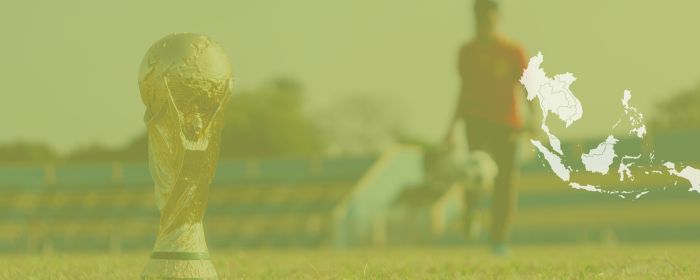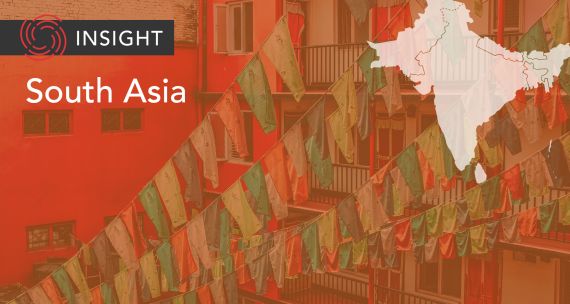The Takeaway
Indonesia lost its first-ever chance to host and play in the U-20 World Cup (WC) after FIFA announced on March 29 that it would cancel the country’s hosting of the tournament, scheduled for May 20–June 11. FIFA did not provide reasons for the decision but cited “current circumstances” as cause for the cancellation, likely referring to growing demands by conservative Islamic organizations and parties in Indonesia to ban Israel’s U-20 team from competing in the tournament. FIFA’s move has impacted Indonesia’s reputation as an international sports host, left the country’s football (soccer) team in the lurch, and disappointed fans, who were looking forward to their first-ever U-20 WC.
In Brief
After its winning bid in 2019 to host the U-20 WC in 2021, Indonesia began preparing for the tournament to match FIFA standards. But due to COVID-19, the tournament was postponed to 2023. Six Indonesian provinces were selected to host the matches: Bali, Jakarta, Central Java, West Java, East Java, and South Sumatra. The provincial governors all signed agreements guaranteeing their readiness to host the games. But in March 2023, the governors of Bali and Central Java said they would refuse to host the Israeli team, which qualified for the tournament in 2022. The governors argued that Indonesia’s constitution calls for the global abolition of colonialism, adding that due to “our long commitment to realizing an independent Palestine,” the Israeli team should be excluded from competing in Indonesia.
Protests in Indonesia against Israel’s participation in the tournament began in 2022. The governors’ statements, which were made after Islamist civil groups and NGOs announced their opposition to Israeli participation in the games, added more fuel to the fire.
The escalating tensions compelled FIFA to rescind Indonesia’s hosting status and start the hunt for a new host country. The National Football Association of Indonesia (PSSI) tried to convince the governors to withdraw their statements — and FIFA to reconsider its decision — but PSSI's efforts failed.
Implications
FIFA’s move to strip Indonesia of its hosting status has damaged the country’s reputation globally, and brought significant economic loss, estimated at at least C$332.5 million (3.7 trillion Indonesian rupiahs). This figure includes C$36 million (400 billion Indonesian rupiahs) spent on renovating and upgrading the required infrastructure and more than C$45 million (500 billion Indonesian rupiahs) allocated for “operations” of the games.
Indonesia’s U-20 football team has also lost an opportunity to compete in the tournament — a perk usually offered to the host country. The U-20 WC would have been Indonesia’s third WC competition. Indonesia first played, unofficially, in the WC in 1938 (under the banner of the Dutch East Indies). The first official appearance for the Indonesian team was in 1958. That year, Indonesia withdrew from the tournament after refusing to compete against the Israeli team.
The cancellation of the U-20 WC has been attributed to disunity within the government. While the ruling party — the Indonesian Democratic Party of Struggle (PDI-P), a secular and nationalist political party — was against Israel’s participation, one member, President Joko Widodo, broke party lines by stating that Indonesia would not block or prevent Israel’s participation in the U-20 WC.
The sudden opposition from the governors of Bali and Central Java, who are also members of PDI-P, is seen by most Indonesians as politically motivated and a way to shore up Islamic votes in advance of the 2024 general elections. Both governors now face a massive public backlash and are being blamed as the primary reasons for FIFA’s cancellation.
While Indonesia does not maintain diplomatic ties with Israel, Israeli athletes have participated in sporting competitions in Indonesia in the past without issue. Most recently, Israel participated in the 2023 Union Cycliste Internationale (UCI) Track Cycling Nations Cup from February 23–26 in Jakarta.
The cancellation of the games has also underscored the rise of Islamic conservatism in the country. Islamist civil groups and NGOs, including the Indonesian Ulema Council, Indonesia’s top deliberative Islamic council, also opposed Israeli participation on Indonesian soil. The government often hesitates to oppose Islamic civil groups and NGOs over fears of being labelled “anti-Islamic.”
Indonesia is known abroad for its moderate and tolerant strand of Islam, known as Islam Nusantara, which blends Islamic traditions with the cultural traditions of Indonesia. However, to some, this image of tolerance is fading away as Islamic conservatism continues to take root in the country of 274 million (including an estimated 231 million Muslims).
What’s Next
- Future of Indonesian football
FIFA indicated in its announcement that it may sanction PSSI. In the worst-case scenario, sanctions could include suspending Indonesia from participating in the Asian qualifying rounds for the 2026 WC, which is expected to begin in October 2023. Even if sanctions were imposed, FIFA has pledged to remain committed to helping and supporting Indonesia improve the management and security of its football matches following the deadly stampede at Kanjuruhan Stadium, which led to the death of 135 people in East Java.
- Future international events at stake
FIFA’s cancellation has called into question the future of international events in Indonesia, and specifically events in Bali. Indonesia is poised to host the 2023 Association of National Olympic Committees (ANOC) Beach Games from August 5–12 in Bali. Israeli athletes have qualified and are expected to participate in those games. Officials from the Indonesian Olympic Committee have stated that the games are still scheduled to take place. However, the governor of Bali has announced that he is also opposed to Israeli participation in the Beach Games. This does not bode well for the future of the Beach Games as the ANOC may follow in the footsteps of FIFA and cancel the hosting of the games in Bali.
• Produced by CAST's Southeast Asia team: Stephanie Lee (Program Manager); Alberto Iskandar (Analyst); Saima Islam (Analyst); and Tim Siao (Analyst).




